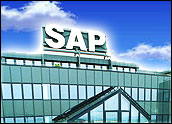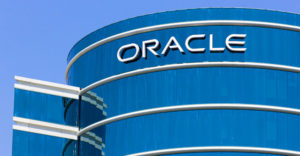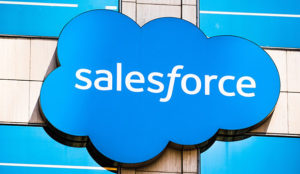
One of the more interesting developments of the last week has been the announced acquisition of ATG (Art Technology Group) by Oracle. ATG is one of the leading suppliers of e-commerce solutions, and Oracle liked their stuff well enough to plunk down a cool billion bucks for the logo.
I thought it was a good idea at the time, but I am also interested in hedging my bets. Questioning or being skeptical of Oracle’s acquisitions has not always been a good career move. I was one of many voices who questioned the sanity of the binge that Oracle went on when it bought up much of the front-office industry in the middle of the last decade.
Several years later, the product set that once looked like Marshal Tito’s Yugoslavia still hangs together, and Oracle says it is about to release for general availability the new technology stack that will “fuse” it all together.
Only a company like Oracle or Microsoft or a few others, with deep pockets, could pull off something like this. In addition to the billions it took to buy the companies, billions more had to go into not only Fusion’s development but also the care and feeding of so many disparate brands during the interval. I assume the acquired companies have been throwing off enough cash to make the deals palatable, but I have no first hand knowledge of this.
The Other Ellison Enterprise
So when I look at the ATG acquisition, part of me says, not to worry, Oracle has it all figured out; besides, it’s only a billion bucks. (In truth, that last bit about the billion bucks makes me blanch.) The other part of me says this is a lot of money, especially now in this part of the recovery and this part of the front-office software life cycle.
Now, to be sure, e-commerce is really important for a variety of reasons, and I can envision scenarios where it continues to gain in popularity. For example, buying online will likely increase in popularity if we see another gas price spike that makes people go to the mall less often. But I also know that as demand for e-commerce software increases, the trend toward commoditization will likely increase. Ironically, one of the commoditizers in this case is none other than NetSuite, affectionately known as “Larry’s Other Company.”
NetSuite’s got game — they’re global (just opened a development center in the Czech Republic), they’re all SaaS, and their e-commerce functionality is already tightly incorporated with their ERP and CRM. There’s a lot to like with NetSuite (and they are not a client). But N isn’t even the only alternate player in the universe. There are many players in the space, starting with IBM and moving through the alphabet to 3dCart, Volusion, and Venda, just to pick some names out of a hat. In addition, there is a growing list of open source software to contend with.
Now, certainly, these vendors don’t all compete for the same business. A company like Oracle has to have a credible system that it can offer to its Global 2000 customer base, especially when competing with the likes of IBM and many of the smaller vendors chase business in the SMB world. I’ve recently has some experience with the open source content management system, Joomla! (Yes the “!” is part of the name.) It’s a good product and they’ve got a robust community of developers and a secondary market of people who implement and sell the product as a download or as a hosted offering. And it has ecommerce functionality. Free.
Then Again …
My point is that the cost of good software has dropped to a very low level. Companies are making more of their money in services rather than product, at least in e-commerce, as far as I can see. So the idea of paying US$1 billion for an e-commerce software company, even one as accomplished as ATG, seems a little out there to me.
But maybe Oracle sees something; maybe they see a future in which they sell more services and an e-commerce product makes sense to them as something that fills a need for solutions that sell services. That might sound crazy, but in the last year Oracle became a hardware company with the acquisition of Sun Microsystems. You might not have been able to see that coming five years ago, but there it is.
So, Oracle and ATG — good idea? I really don’t know. If past is prologue, then deep pockets might again make a funky strategy into a winner.
Denis Pombriant is the managing principal of the Beagle Research Group, a CRM market research firm and consultancy. Pombriant’s research concentrates on evolving product ideas and emerging companies in the sales, marketing and call center disciplines. His research is freely distributed through a blog and Web site. He is the author of Hello, Ladies! Dispatches from the Social CRM Frontier and can be reached at [email protected].






















































